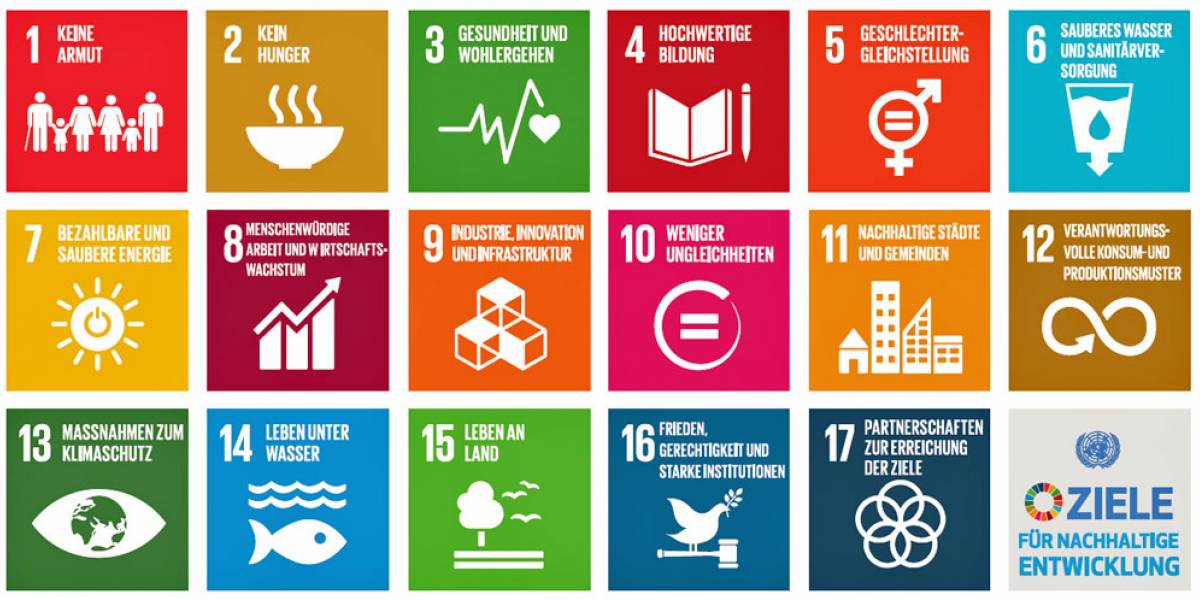The concept of sustainability originally comes from forestry and means that only as much wood is harvested as can regrow. Today, sustainability is understood as a comprehensive concept in which economics, ecology, and social aspects are equally important. When these areas are equally considered, it leads to a resource-efficient lifestyle and enables future generations to lead a just and comfortable life.
In September 2015, the 193 member states of the United Nations unanimously adopted the 2030 Agenda for Sustainable Development. The world community aims to achieve 17 Sustainable Development Goals (SDGs) for socially, economically, and environmentally sustainable development by 2030, thus enabling people all over the world to live in dignity, create peace, and maintain a healthy environment.
In the same year, UNESCO also established UNESCO Global Geoparks as a new category alongside World Heritage Sites and Biosphere Reserves.
UNESCO Global Geoparks are areas with geological sites and landscapes of international geological significance. UNESCO Geoparks make this value tangible through a holistic concept of education, protection, and sustainable development, for both the local population and visitors. UNESCO Geoparks promote identification with the region, tourism, and regional added value. They address the challenges of global change in the region, always referring to the special geological heritage in connection with the respective cultural and natural heritage.
German UNESCO Commission
A Holistic View of Our Planet
UNESCO Global Geoparks advocate for a holistic view of our planet and its developmental history. In their environmental and awareness-building activities, they place particular emphasis on conveying these natural connections and their impact by humans. They design projects and initiatives as bottom-up processes in collaboration with the residents of their regions and exchange experiences with partners worldwide through their international activities. As model regions for sustainable regional development, UNESCO Global Geoparks are particularly suited to implementing and further anchoring the SDGs in society. Both industrialized and developing countries should align their actions with the agreed-upon 17 Sustainable Development Goals in the future.
7 out of 17: Sustainable Development Goals
Not all of the 17 SDGs (Sustainable Development Goals) can be directly applied to UNESCO Global Geoparks. It is necessary to differentiate between urban and rural areas, inland or coastal areas, developing or industrialized countries. However, the following SDGs are especially relevant for our Vulkaneifel region:
- 3 Good Health and Well-being
- 4 Quality Education
- 8 Decent Work and Economic Growth
- 11 Sustainable Cities and Communities
- 13 Climate Action
- 15 Life on Land
- 17 Partnerships for the Goals
Our Goals
- those who know and love their region will protect it -
Regional and local measures are necessary to achieve the goals by 2030. The Nature and Geopark Vulkaneifel aims to establish a Vulkaneifel Academy as a tool for promoting awareness of the special geological and natural heritage of the Vulkaneifel and thus strengthen knowledge about Earth's history, landscape, and biological diversity, as well as knowledge-based awareness of a health-promoting landscape. At the same time, we want to anchor knowledge about our culture in people's consciousness, further develop identity formation, and strengthen appreciation for the Vulkaneifel. In this way, the Vulkaneifel region contributes to the global sustainability goals of the world community at the regional level and for future generations in our region!

